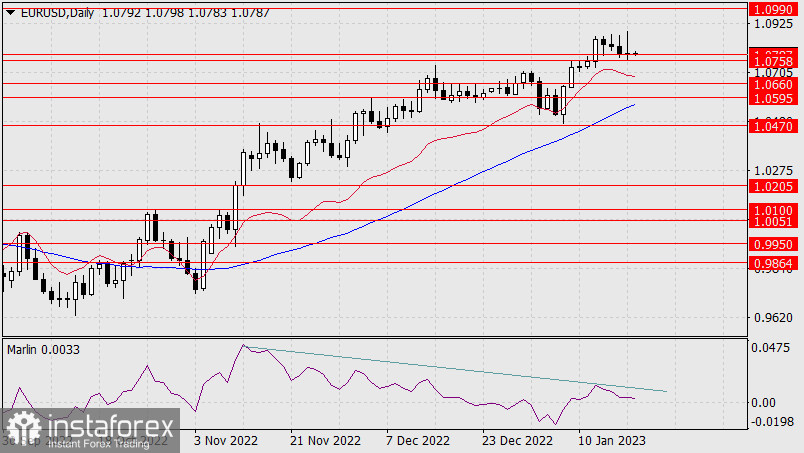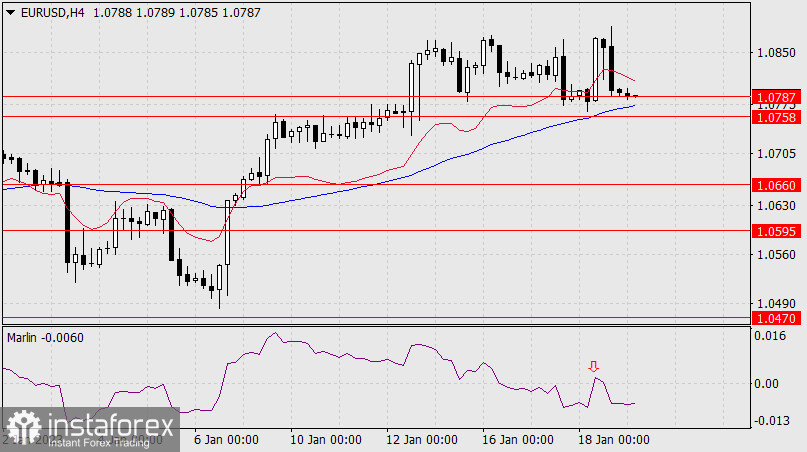The U.S. S&P 500 stock index collapsed 1.56% on Wednesday, pulling down counter-dollar currencies and curtailing risk appetites. The reason was the strong decline in U.S. retail sales. In the December estimate, sales were down 1.1%; a revision to the November estimate lowered the figure from -0.6% to -1.0%.

The yield on 5-year U.S. government bonds fell from 3.61% to 3.43%. This is important because it shows that investors are starting to withdraw from risky instruments. If our assumption is correct, then the stock market will be the driver of the dollar's strength in the future.
The euro was able to gain 100 points yesterday, but closed the day by only gaining 5 points. It stopped falling at the upper limit of the target range at 1.0758/87. Now the divergence, marked by the blue line on the daily chart, can be considered as completed. After the price moves under the lower limit of the range (1.0758), the target 1.0660 will become available.

Yesterday, on the four-hour chart, the Marlin oscillator made a false breakout into the positive area (ascending trend area), quickly returned to the negative territory, and now the oscillator helps the price cross the 1.0758/87 range and together with it the MACD indicator line. In case it succeeds, the price will be stimulated to reach the first target.





















